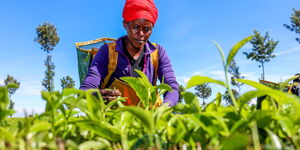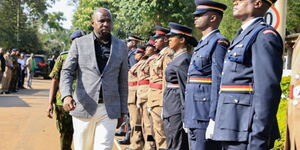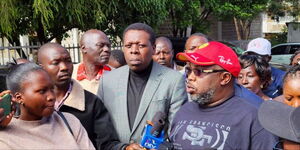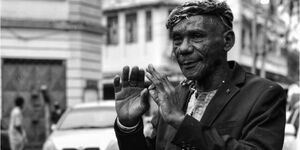Popular YouTube star Miss Trudy went viral on Tuesday, April 18, after she was caught on camera lamenting that she had been denied permission to create content at Moi International Airport in Mombasa.
The YouTube star claimed that content creators in Kenya had the right to film in any part of the country.
Kenyans.co.ke found out that her actions went against the Protected Areas Act Chapter 204 and Article 24 of the Kenyan Constitution.
While Trudy claimed that no one had the power to prevent her from filming, Article 24 of the Kenyan Constitution lists limitations of rights and fundamental freedoms.
One of the parameters where your right to film content is curtailed is whereby national security can be compromised as a result of your video.
The Protected Areas Act Chapter 204 lists over 200 areas where content creators and unauthorised persons are not allowed to film.
Kenyans.co.ke compiled a list of the top five areas where it is illegal to create promotional content.
State House and State Lodges
In 1976, the Act made its first list of protected areas where filming was illegalised together with unauthorised access.
They include State House, Nairobi and State Lodges in Mombasa, Kisumu, Sagana, Eldoret and Nakuru.
Army barracks and police stations
The Protected Areas Act later revised the list to include Kenya Army Headquarters, at Waterworks Camp, Hill Estate, Nairobi.
The protection was subsequently extended to various army barracks across the country including; Langata Barracks, Kahawa Garrison Camp, Gilgil Barracks, Nakuru Barracks, Lanet Barracks, Nanyuki Barracks and Nyali Barracks.
All Kenya Airforce and Kenya Navy camps were further added to the list.
Under the police department, the government listed Criminal Investigations Department Headquarters at Milimani Road, Nairobi Area as a protected area.
Kiganjo Police Training College and police stations across the country are also on the list of protected areas.
Airports
Protected Areas Act Chapter 204 listed Moi International Airport where Miss Trudy was filming as a protected area in 2011.
It was listed together with The Kenya Petroleum Refineries at Changamwe, and petroleum depots along Changamwe, Shimanzi and Kisimayu road circuits in Mombasa.
Jomo Kenyatta International Airport (JKIA) further warns that it is an offence to photograph or film the National flag, the President, state lodges, soldiers, prisons and convicts and military barracks.
On March 2016, four British citizens were arrested by Kenyan authorities for taking photos of planes taking off at Nairobi's Wilson Airport while they sat in a bar.
Airports are among the government facilities designated as protected areas/controlled security zones.
The Kenya Civil Aviation Security Regulations 2020 59 (1-c) states that a person commits an offence by operating a portable electronic device when such an act is prohibited.
Kenya Ferry in Likoni
Due to the threat of terror, it is illegal to take photos or videos at Kenya Ferry in Likoni, Mombasa.
Guards are stationed inside the ferries to ensure that people do not flout the filming and photography ban.
The government though allows Kenyans to film and photograph the ferry waiting bay and adjacent seashore.
Diplomatic Missions in Nairobi
It is illegal to film your content outside diplomatic missions based in Nairobi which include embassies and United Nations offices.
On September 12, 2019, the United States Embassy in Kenya stated that, “No luggage, electronic or photographic equipment is permitted in our waiting room or on other Embassy premises, nor are we able to hold these items for you.”
The embassy further forbade any other battery-operated or electronic devices such as computer tablets, digital diaries, pagers, cameras, MP3s, laptops, or portable music players and wearable devices such as Google glasses or body cameras within its premises.
Penalties
According to the Protected Areas Act, anyone caught filming in protected areas shall be guilty of an offence and liable to imprisonment for a term not exceeding two years or to a fine not exceeding five thousand shillings, or to both such imprisonment and fine.












